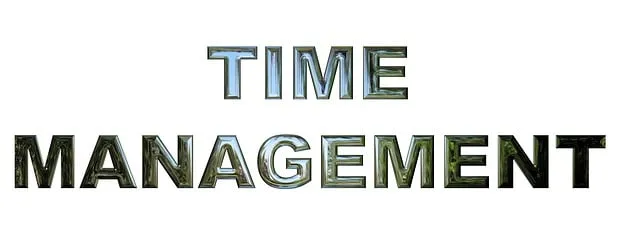Missed patient calls pose a significant challenge in competitive healthcare markets, potentially leading to treatment gaps and reduced satisfaction. Implementing a call-back management system is crucial for reclaiming these opportunities, enhancing patient experience, reducing wait times, and boosting clinic reputation. These systems automate the process of identifying and prioritizing unanswered calls, combining it with manual oversight from skilled staff. The result is improved efficiency, personalized attention, and higher booking confirmations through automated follow-ups, lost call recovery, and proactive reminders across communication channels. In today's digital age, this hybrid approach revolutionizes healthcare delivery by swiftly addressing missed calls and optimizing appointment bookings.
In the healthcare sector, missed patient calls can significantly impact appointment bookings and overall patient care. This article explores effective strategies to mitigate this issue, focusing on automated and manual call-back management systems. We’ll delve into the profound effects of missed calls, the benefits of automation, key features of robust callback systems, and successful integration of human interaction. Additionally, we’ll uncover optimization strategies for maximizing appointment bookings, providing a comprehensive guide to enhancing patient engagement and healthcare services. Discover how these approaches can revolutionize your clinic’s operational efficiency through effective call-back management.
- Understanding the Impact of Missed Patient Calls
- The Role of Manual Call-Back Management
- Advantages of Implementing an Automated System
- Key Features of a Robust Callback Management System
- Integrating Automation with Human Interaction
- Strategies for Optimizing Appointment Bookings
Understanding the Impact of Missed Patient Calls

Missed patient calls can significantly impact healthcare practices’ operational efficiency and patient satisfaction. When a patient’s call goes unanswered, it often results in missed opportunities for treatment, consultation, or follow-up care. This issue is particularly critical in competitive healthcare markets where patients have numerous options. A single missed call could mean losing out on a potential patient who might choose another clinic for their medical needs.
Implementing an efficient call-back management system is essential to reclaiming missed leads and improving overall appointment bookings. Such systems automate the process of identifying and prioritising unanswered calls, ensuring no prospect is left untapped. By promptly addressing these calls, healthcare providers can enhance patient experience, reduce wait times, and ultimately improve their clinic’s reputation in the market, effectively resolving the issue of lost call appointments.
The Role of Manual Call-Back Management

In healthcare settings, effective call-back management systems are essential for optimal patient care and improved operational efficiency. While automation plays a significant role in streamlining processes, manual call-back management remains indispensable. This human element is crucial for handling complex patient inquiries, addressing unique circumstances, and providing personalized responses that an automated system might struggle with. Skilled staff members can assess the context of missed calls, prioritize appointments based on urgency, and offer tailored solutions to ensure patients receive timely care.
A well-defined medical callback protocol guides this manual process, ensuring every missed call is promptly addressed. Unanswered calls are no longer considered lost; instead, they represent reclaiming missed leads and opportunities for better patient engagement. By implementing robust call-back management practices, healthcare providers can enhance patient satisfaction, reduce no-show rates, and create a more responsive and efficient appointment booking system.
Advantages of Implementing an Automated System

Implementing an automated call-back management system offers numerous advantages for healthcare practices aiming to enhance patient engagement and appointment bookings. One of the key benefits is improved efficiency; these systems can quickly and accurately identify missed calls, ensuring no potential patient interaction goes untapped. By automating the call follow-up process, staff can focus on more complex tasks, leading to better resource allocation and increased productivity.
Additionally, automated systems provide a consistent and personalized experience for patients. They can instantly reconnect patients with the right healthcare professionals, reducing wait times and enhancing satisfaction. This technology also enables practices to reclaim missed leads by promptly rescheduling appointments or gathering patient information for future contact, thereby increasing booking rates and fostering stronger patient relationships.
Key Features of a Robust Callback Management System

A robust callback management system is a critical component for healthcare institutions aiming to optimize appointment bookings and improve patient engagement. The primary goal is to efficiently address missed calls, ensuring no potential patient is left unheard or uncontacted. Key features of such a system include automatic call distribution, which intelligently routes incoming calls to the most suitable staff member based on skills and availability. This reduces wait times for patients and enhances their overall experience.
Additionally, a comprehensive callback management system incorporates automated call follow-up automation. It automatically schedules callbacks for patients who cannot take or return calls immediately, ensuring timely resolution of their inquiries. Implementation of a structured medical callback protocol, including options for SMS reminders and email confirmations, further increases appointment attendance rates. Unanswered call resolutions are swift, with the system providing real-time insights into call volumes, peak times, and staff performance, allowing for continuous improvement in patient care processes.
Integrating Automation with Human Interaction

In an era where technology is transforming healthcare delivery, integrating automation with human interaction presents a powerful solution for improving patient engagement and appointment bookings. A robust call-back management system that combines automated processes with human expertise can significantly enhance patient care. This hybrid approach begins with automated systems identifying missed calls and triggering a series of personalized follow-up messages or calls, ensuring no patient query goes unnoticed.
By implementing a medical callback protocol centered around call follow-up automation, healthcare providers can efficiently manage high call volumes while maintaining a human touch. Unanswered call resolution becomes swift and effective, as automated systems can quickly gather patient information and schedule callbacks, freeing up staff to handle more complex issues. This integration not only improves patient satisfaction by reducing wait times but also allows healthcare professionals to focus on critical tasks, ultimately leading to better operational efficiency.
Strategies for Optimizing Appointment Bookings

Optimizing appointment bookings involves a strategic blend of efficient call management and personalized patient engagement. A robust call-back management system is key to reducing missed calls and increasing booking confirmations. Implementing call follow-up automation allows healthcare providers to promptly address unanswered calls, ensuring no potential patient is left unheard. By automating the process, critical time is saved, enabling staff to focus on other essential tasks.
Additionally, integrating lost call appointment recovery mechanisms into daily operations can significantly boost booking rates. Proactive measures like automated reminders and follow-ups through various communication channels help keep patients engaged and committed to their appointments. Efficient unanswered call resolution strategies not only improve patient experience but also contribute to better resource utilization within the healthcare facility.
